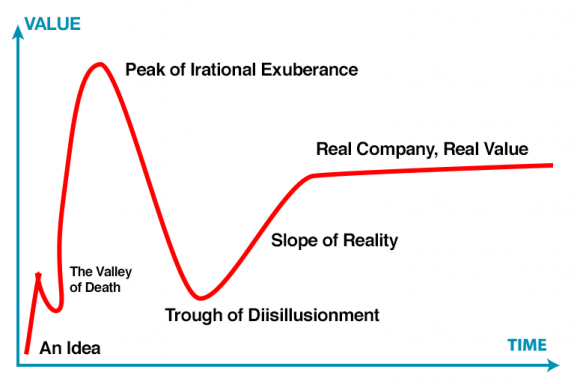
As an entrepreneur, I’m well experienced at wearing multiple hats and in such, in viewing companies through a multitude of lenses: production, marketing, sales, finance, etc.
The same is true as an investor, where I swap between two distinct hats: Personal and Professional investor.
You’d think these two hats were identical, but they are not. They are complimentary, but are two quite distinct styles, serve different purposes, and differ in their structure and scale.
The biggest difference in the hats is that I’m paid to make investments through Fledge, and thus work at that process all year long. Personally, no one gets mad at me if I don’t make any investments.
My work at Fledge leads me to review thousands of startup profiles per year, year after year. That process not only helps me find startups for the accelerator, but also gives me a great understanding of what types of startups are starting up, how the startup market is changing, and after four years, what ideas have been tried and have failed repeatedly.
This massive view of dealflow is what separates the professionals from the amateurs.
Not the number of investments an investor makes nor the size of those investments, but simply the effort of seeing thousands of deals per year and the pattern matching which follows from seeing so many repeat ideas, and so many dead startups.
Case in point, a fellow Toniic investor sent an email today with the outline of a new insect-as-food company. He was excited. I know that excitement, as I remember my first insect-as-food company pitch in 2012. But I’ve seen perhaps a dozen over the past four years, talked to a handful face-to-face or Skype-to-Skype, and did a post mortem with the founder of that 2012 company last year. From all that, I know what can go wrong in the insect-as-food business, and I know two non-obvious business models that work.
I know hundreds of patterns and anti-patterns for startups that more likely lead to success or are more certain paths to failure. I’ve learned more of these over the past four years as a professional investor and advisor than the 20 previous years as a serial entrepreneur, learning startup lessons one at a time. (When I’m done updating my Next Step book series, a future book in will be on patterns and anti-patterns.)
Perhaps this is a cause of the underlying lament of Angels, that they simply don’t see enough deals to know what questions to ask in due diligence, and thus rely more on luck than skill to find their winners?
Or perhaps this supposed leg up by professionals is a cause in the arrogance commonplace in venture capital, where seen it, hated it is too often the quick response, overlooking innovation when it comes packaged in a repeat wrapper.














